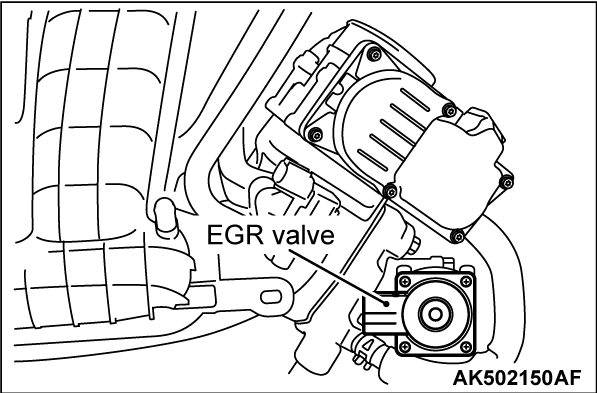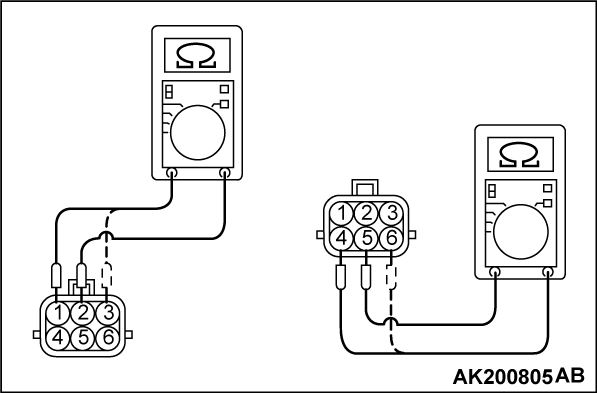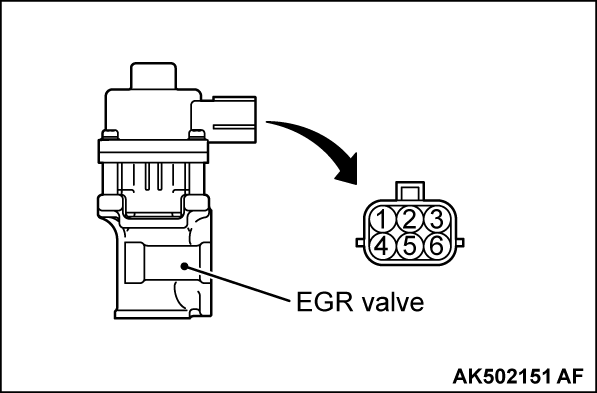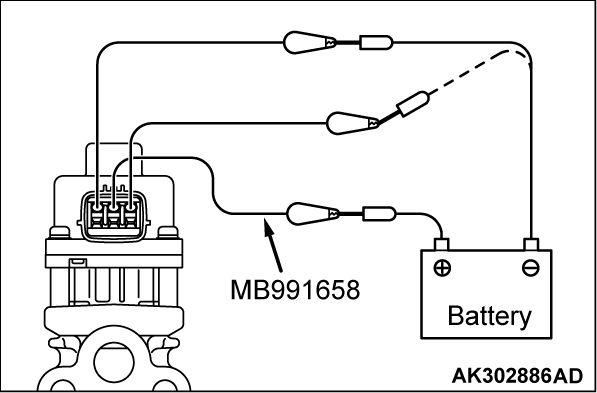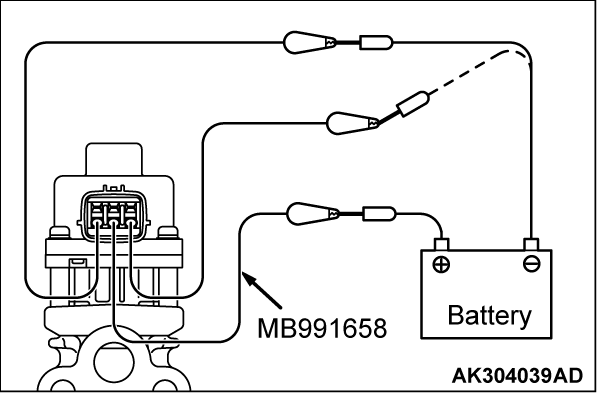EGR VALVE (STEPPER MOTOR) CHECK
Required Special Tool:
- MB991658: Test Harness Set
Checking the Operation Sound
1. Check that the operation sound of the stepper motor can be heard from the EGR valve when the ignition switch is turned ON (without starting the engine).
2. If the operation sound cannot be heard, inspect the drive circuit of the stepper motor.
| note | If the operation sound is not heard, and the circuit is normal, either the stepper motor or the ECM may have failed. |
Checking the Coil Resistance
1. Remove the EGR valve.
2. Measure the resistance between terminal No. 2 and either terminal No. 1 or terminal No. 3 of the connector at the EGR valve.
Standard value: 20 - 24 Ω [at 20°C (68°F)]
3. If the resistance is not within the standard, replace the EGR valve.
4. Measure the resistance between terminal No. 5 and either terminal No. 6 or terminal No. 4 of the connector at the EGR valve.
Standard value: 20 - 24 Ω [at 20°C (68°F)]
5. If the resistance is not within the standard, replace the EGR valve.
Operation Check
1. Remove the EGR valve.
2. Connect special tool MB991658 to the EGR valve.
3. Connect the battery positive (+) terminal to terminal No. 2.
4.
| caution | Connecting battery voltage to the EGR valve for a long time could damage the coil. |
Connect terminals 1 and 3 to the negative (-) terminal of the battery, in order to test whether the stepper motor vibrates (with a slight shudder), indicating that the stepper motor is operating.
5. Connect the battery positive (+) terminal to terminal No. 5.
6.
| caution | Connecting battery voltage to the EGR valve for a long time could damage the coil. |
Connect terminals 4 and 6 to the negative (-) terminal of the battery, in order to test whether the stepper motor vibrates (with a slight shudder), indicating that the stepper motor is operating.
7. If vibrations can be felt as a result of the test, the stepper motor is determined to be normal.
8. Using a new gasket, install the EGR valve by tightening its mounting bolts to the specified torque.
Tightening torque: 24 ± 3 N·m (212 ± 27 in-lb)
![[Previous]](../../../buttons/fprev.png)
![[Next]](../../../buttons/fnext.png)
